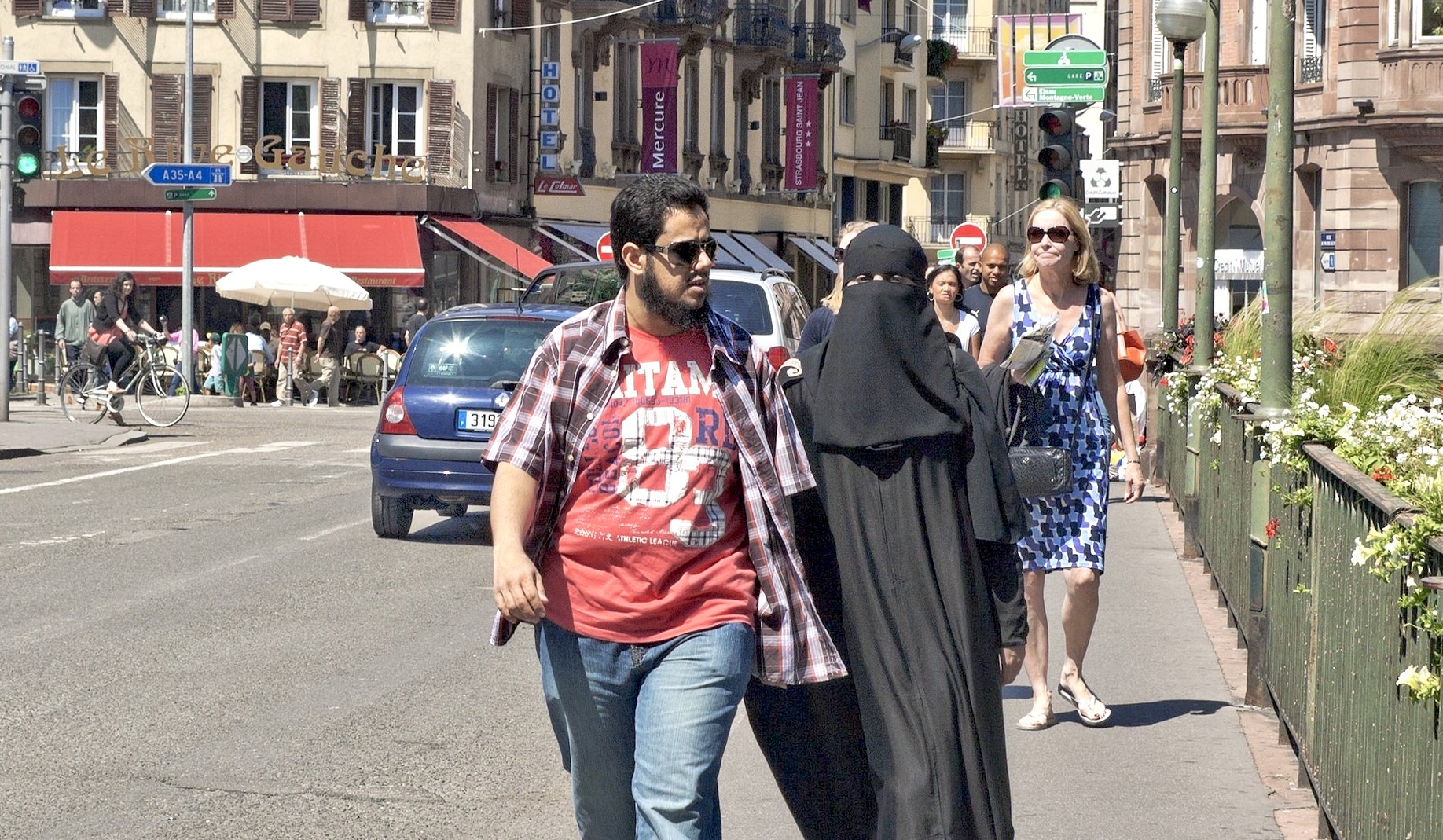De-Ghettoizing Denmark's Muslim Children
 |
| Denmark’s new “ghettos” |
"Some will wail and say, we're not equal before the law in this country. Certain groups are punished harder, but that's nonsense."
"To me this is about, no matter who lives in these areas and who they believe in, they have to profess to the values required to have a good life in Denmark."
Justice Minister Soren Pape Poulson, Denmark
"Danish politics is just about Muslims now. They want us to get more assimilated or get out."
"I don't know when they will be satisfied with us."
Sarah Naassan, 32, Mjolnerparken housing complex
 |
| A woman stands on a terrace in Mjolnerparken, a housing estate that features on the Danish government's "Ghetto List", in Copenhagen, Denmark, May 8, 2018. (REUTERS/Andrew Kelly ) |
"It hurts that they don't see us as equal people."Denmark has enacted a new enforced integration policy, to introduce Muslim children living in what the government considers to be 'ghettos' to Danish normatives in everyday life. Low-income immigrant communities are being targeted for this new initiative. From the age of one year old "ghetto children" will be taken from their families for up to 25 hours weekly to take part in instruction relating to "Danish values", a course of action that will be mandatory.
"We actually live in Danish society. We follow the rules, we go to school. The only thing we don't do is eat pork."
"If you create new kinds of laws that apply to only one part of society, then you can keep adding to them."
"It will turn into the parallel society they're so afraid of. They will create it themselves."
Barwaqo Jama Hussein, 18, Somali refugee
"They spend too much Danish money."
"We pay their rent, their clothing, their food, and then they come in broken Danish and say, 'We can't work because we've got a pain'."
Dorthe Pedersen, Danish hairdresser
"The young people will see what it is to be Danish and they will not be like their parents."
"The grandmothers will die sometime. They are the ones resisting change."
Anette Jacobsen, 64, Danish pensioner
There they will be introduced to Christmas traditions and those of Easter, along with Danish language instruction. Should any parents resist, refuse or be in any way noncompliant their welfare payments could be stopped. This new set of laws meant to regulate social life in 25 targeted low-income, heavily Muslim enclaves has a distinct purpose, that Muslim residents be merged into the mainstream of life in Denmark. There is no choice here, this is a mandatory venture which everyone is compelled to accept.
Ghettos, warned Danish Prime Minister Lars Lokke Rasmussen in his New Year's address -- could "reach out their tentacles onto the streets", spreading violence and unrest, much as has been seen taking place in France with the banlieues, home to immigrant Muslim families and a law unto themselves where French authorities fear violence should they intrude. Assimilation is the goal now in Denmark, upgraded from the original "integration".
 |
| Muslims attend a demonstration in Granada on August 23, 2017 in protest against a surge in anti-Islamic hate crimes following last week's deadly attacks in Barcelona and Cambrils | Jorge Guerrero/AFP via Getty Images |
A parliamentary majority agreed to a most of the twenty-two proposals making up a proposed "ghetto package" of initiatives; the remainder are scheduled for a fall vote. Some of the proposals are punitive in nature; under consideration is a measure that would permit courts to double punishment for certain crimes committed in one of the 25 ghettos based on residents' income, employment status, education levels, criminal convictions and "non-Western background".
A four-year prison sentence would be imposed on those parents who plan to force their children to embark on extended visits to countries of origin whose design appears to be to re-introduce their children to their heritage, culture and religious devotion stemming from their place of birth. It is a ritual called "re-education trips". To reinforce to the children how and why their experience and culture is different from that of the indigenous Danish public.
This is precisely what the new rules are meant to prevent and to guide the children in the opposite direction, giving them the kind of exposure that would persuade them that they are part of the country's fabric in every way, and leading them to consider their heritage secondary to their national loyalty. A not unreasonable and in fact sensible purpose which should result in a younger generation whose concept of belonging would be to the country that nurtures them.
 |
Photographer: Oliver Berg/AFP/Getty Images |
In other countries of Europe inundated with the presence of Muslims, immigration policies tend to
be considerably more relaxed, where children are not groomed for assimilation. Denmark's new venture is unique and distinctive. Certain to arouse huge resentment in the adult Muslim population with a way to be found for resistance. Despite which the situation throughout Europe calls out for drastic action of this nature, since Islam by its very nature and purpose is intrinsically resistant to assimilation.
In the Netherlands, Austria, Denmark, France, Germany and the United Kingdom immigration policies and courses associated with them were voluntary in the 1990s; yet in most of those same countries today, those courses are now compulsory. In much earlier waves of immigration by non-Muslims, integration was regarded as desirable by the new arrivals. It has only been with Muslim immigration that resistance to integration much less assimilation has created a distance and a threat that Europe is only now struggling to overcome.

Labels: Denmark, Europe, Immigration, Integration, Islam, Refugees

<< Home